|
Knickerbocker Glories was a show that I produced and was part of in June 2010 at the Union Theatre in London. It consisted of three fully staged one-act plays: Miss Appleyard’s Awakening by Evelyn Glover (first performed on 20th June 1911), Lady Geraldine’s Speech by Beatrice Harraden (part of the entertainment at the Princes Skating Rink for the WSPU’s Women’s Suffrage Exhibition in May 1909) and How The Vote Was Won by Cicely Hamilton and Chris St John, (first performed at the Royalty Theatre on the 13th April 1909). All of these pieces were originally presented for a sympathetic, pro-suffrage audience and all were originally written for the Actresses Franchise League. 2010 brought with it a big question. My initial enchantment at learning about the AFL in 2007 had by then turned into a near obsession and something that felt and still feels enticing, relevant, challenging and wonderful. I had just been accepted to do my PhD about the AFL and suddenly became a bit scared that I was seeing everything through rose-coloured glasses and in fact my love affair with this topic was merely infatuation and that I was maybe giving too much weight and thought and significance to it. After doing numerous public readings using extracts from many AFL pieces mixed with verbatim testimonies and contemporary material which all had great feedback from audiences and other actors I was curious to see if the pieces themselves could stand alone. This wouldn’t be a one off reading with an invited, definitely interested audience – I wanted to see if these pieces still had theatrical appeal and strength. For a longer run, bigger cast and auditorium I thought comedies would have the broadest appeal and present a different image of Suffragettes to the most recent theatrical one seen in London, Her Naked Skin at the National Theatre, which had been on at the Olivier from July to September 2008 and featured a group of Suffragettes in prison, including a graphic force-feeding scene. Her Naked Skin had also started with the clip of Emily Wilding Davison running to the King’s horse at the Epsom Derby in 1913. I very much wanted to show a different side of the suffrage agitation – obviously still a dramatic one! – and one which gave a flavour of the political theatre surrounding the issue at the time. Having toyed with all sorts of alternatives it seemed best if Knickerbocker Glories was an evening of taster pieces – three one act plays – so that an example of the charming comic women’s writing around this subject which had captured my imagination could be shown . Having performed in two delightful readings of How The Vote Was Won at the Novello Theatre and the Orange Tree Theatre I knew it worked! It also has eight female characters – so I made a cast list and then worked backwards – thinking of the performers needed for that piece and then looking at the other plays with those types in mind, found Lady Geraldine’s Speech which was great fun and full of fantastic characters. For the opening piece Miss Appleyard’s Awakening was perfect as it deals straight away with the political issues, and opening the evening with a small piece that introduced a glimpse of the complexities of the arguments as well as two strong female characters seemed both bold and sensible! Knowing that some people would come to these plays with no prior knowledge of the suffrage movement at all, let alone the specific details mentioned in the pieces it was important that the information given – including terminologies, references to people and stereotypes both of the suffragette and anti suffragist – should help the audience to gain a sense of some of the reference points.Of course all of the plays are around a similar theme but I hoped that by having references repeated the audience might begin to feel a part of that unfamiliar world and it was therefore easier (and a relief) to take out any verbatim material or explanation sections that had been an obvious way to draw the audience into the historical context of the material. I did write an impassioned potted intro to the AFL in the programme - which you can see here - for those who might want to read about it before or after the performance. This was the logo, designed by Christopher Clegg – in the AFL colours of pink, white and green! As you can see it’s bright, jolly, grabs the eye and has a lot of energy about it. And here is the poster: A bold and definite message! My passion for the AFL and their work meant that I didn’t want to apologise for these plays. It was important to be honest about what they are and were and what people would be coming to. Initially it was tempting to ‘soften the blow’ but the whole project was bold and the pieces themselves hardly wallflowers. In fact we had this outside the theatre - partly a nod to the idea of the suffragists chalking pavements to announce suffrage meetings: Cast and creatives views on participating in the show: Russ - It was fascinating to be part of a project that the company really cared about. On "Knickerbocker Glories", it was amazing to have a company so juiced up; so united by the source material. Kathryn - What really stayed with me was the audience reaction and the need for people to discuss the content of the plays in depth after the performances. Many couldn't believe that they had been written 100 years ago and marvelled at the wit, humour and clever way of putting across a message which at the time was so dear to the writers. As an actress I felt empowered in the roles I played. To date I can hand on heart say I have never been cast in a role where my character actually speaks about issues with another woman on stage and doesn't have to be backed up by a man or a male lover or husband and doesn't have to be viewed as a sexual object. I feel the plays chosen and performed as part of Knickerbocker Glories truly smashed through most of the banal and tedious female characters that we are presented with today. They still seemed to have a certain freshness about them. Karen - it made me feel a lot more connected to the women who fought for our right to vote, and just how much they did fight, and how much they sacrificed. If I'm honest, I used to take for granted the fact that we as women were able to vote. In fact, I'm ashamed to admit I hadn't voted for many years. When people would say "women lost their lives so you could vote" I would reply that it was my right to choose whether I wanted to or not. Learning the truth about what happened, through the research we did, really has changed that. Sam - What struck me about How The Vote Was Won was its wicked sense of humour in the face of institutional intransigence and blindness. As a gay man, I feel I often lack this humour and wit in the face of adversity, and strongly admired and envied the resilience of the writers in using humour to expose the idiocy of resistance to womens' suffrage. I loved directing this play and watching as the audience gradually cottoned on to the gag, and also was delighted that so many people, on first reading/viewing, assumed - as did I! - that this was, indeed, how the vote was won! Charlotte - the thing I felt very strongly was some kind of link with the actresses from that time - their humour, wit, intelligence, grace and charm just pour out of these little plays and I always felt that their ghosts were with us during the run. I wouldn't say I was necessarily any more politically aware as a result of the plays but it did reinforce the sense of the duty of voting and that we still have a long way to go in the battle for equality. Audience comments left in Union theatre comments book: “Important, delightful, impressive” “I’ve never ever seen seven more talented women in one place” “Exhilarating!” "Excellent. Very very amusing. Well done” “Thank you for shaming me into the realisation of how little I knew about the Suffragette movement - and in such an entertaining way!” “BRILLIANT. Such an important piece of theatre. Give us more on this issue” “Ripping good propaganda. Fun - funny - political!” Critical views: All very appealing as historical trinkets, but not exactly a revelation of hidden dramatic talent. Whatsonstage.com 11/06/10 Considering there is still not global suffrage and that many issues of equality are still evading us I thought the plays had a lot of resonance and completely disagree with the reviewer...(rather hilariously a Mr Cole - clearly a descendant of Horace from the last play ) Comment on Whatsonstage review 2/7/10 This production is not a feminist rant, or anti-man. It is a beautifully crafted piece of theatre that highlights women's progress in a (still) male-dominated world. Southwark Weekender 16/6/10 Sadly, it’s hardly a revelatory evening: as historical artefacts, the pieces are not uninteresting, but to even call this drama is pushing it - they’re clunky as the ropiest Soviet propaganda. Time Out 17/6/10 This show is not like anything you’ll have seen on the stage in recent times, but perhaps that’s the point. Plus, it’s so hard to do good comedy that it’s almost shocking how easy it was for these suffragette writers to write laugh-out-loud comedic moments - though perhaps it wasn’t quite as funny when women were actually suffering from the oppression of not having a vote! Broadwayworld.com 24/6/10 Knickerbocker Glories offers a rare glimpse into the theatrical expressions of a fascinating period of political history. All this and fantastic Edwardian costumes too. There are surprises at every turn…what’s most striking about these plays is their lightness of touch. Comedies all, they make the political pill very easy to swallow. West End Whingers 26/6/10 So – it went well. The plays were a joy to perform and many many people remarked on how unusual it was to see so many women on stage and how amazed they were that the writing was so good. It puzzles me as to why the plays from this era are not recognized and performed more. They are so full of politics, propaganda, passion and determination. They have great parts for women. They are from a turbulent, fascinating period in our history – politically and socially – and they show us an image of the changing styles in ‘legitimate’ theatre – from verse drama and epic spectacle to broad comedy to the emerging ‘New Woman’ plays. We know that the women writers and producers who were most successful and the actresses who were part of the movement are not obscure figures of the day. They were colleagues, confidantes, and friends – supporters and supported in their turn.
Suffrage drama or mention of the AFL is so rare in the major Theatre History books. I often search the indexes for mentions and can find Ibsen but not Robins, Barrie but not Hamilton, Edward Gordon Craig but not Edith Craig. How are young actresses, directors and producers to find out about them? I was on tour for a year and took to going into bookshops in every town to look for books about the Suffragettes. There was rarely anything, even the most general or mainstream of titles. How can theatre makers actors and actresses be proud of our social history, let alone our theatrical one if so much is obscured, diminished and ignored? These plays deserve better than being ignored, better than ignorance. They deserve our curiosity and attention – and are waiting to challenge our thoughts and preconceptions about them and to make us think how we can artistically, politically and collaboratively contribute with our own passions and professions. Of course there is tremendous ambition among professional women in the theatre industry. They want to be creative and to show themselves as initiators rather than imitators and have a desire both to see and be part of a more varied representation of themselves on stage. I don’t want all female companies, all female production teams. I want what the suffragettes wanted: equality. So many times the response to my talking about women in theatre, let alone the AFL, is for people to suggest I start my own company, write my own play. An interesting response and one that appeals – if you don’t like it, change it. That would be a short term fix. But it would do nothing about the wider issue. I used to think that the ‘old guard’ needed to die out –that outdated traditions were preventing the production of women’s work gaining any sort of parity with that of men. The more I read, however, the less hope there is am that things will change of their own accord. The male actor-managers and producers who marginalized female work in the late Victorian and early Edwardian theatre are long gone and yet the marginalization continues. In 2009 Sir Peter Hall spoke on BBC R4's Start The Week to talk about his revival of Shaw’s The Apple Cart at the Theatre Royal, Bath. In response to the presenter’s question “Is there a wonderful back catalogue of good political plays?” He said “No, no I’m afraid there isn’t.” The fact is that there certainly is – and in fact in there were over 400 women playwrights between 1900 and 1920, a period of huge political and social turmoil. Not all of their work may still stand as ‘good’ political plays - a subjective judgment at the best of times - but I can attest to having performed a few of them that they have gone down very well indeed. Sir Peter Hall is a distinguished, talented and extremely knowledgeable director. Does he know about the AFL and those involved? Or the Pioneer Players and those that followed? I am inclined to hope that, rather than rejecting their contribution outright, he either simply does not know about them, even as contempories of Shaw. In my experience everyone who works in theatre is part of a shared, adopted history. There’s a sense of belonging that comes with working in and on shows – however long they last. This was certainly true with Knickerbocker Glories. Ruth Keeling – one of the actresses who incidentally also appeared in Her Naked Skin at the National said Knickerbocker Glories was one of the happiest jobs she’d ever done – “There was a real sense of camaraderie. The cast and creatives were intelligent, feisty and opinionated and just what you want in a collective group of people” When I read about the AFL and their work I also think about the technical and support staff – I don’t know about a specific Stage Management Franchise League or anything similar for Scenic Painters, Crew, Wardrobe, Wigs, Box Office, Flys, Front of House, Props, Master Carpenters, Stage Door Keepers etc and yet all of these departments would have been involved with putting the AFL plays on. That’s an awful lot of people therefore not only familiar with but right in the thick of political theatre predominantly, overtly and deliberately written and performed by women. Knickerbocker Glories was an inspiration to me and gave me huge confidence in my research. It answered my question – am I mad to study this? – with a loud and proud no! Seeing and hearing the effect that the plays had on the audience and all the debates, discussions, questions and interest it threw up delighted me. There is clearly a market for theatre that speaks about important things and that entertains and educates us whilst also representing us. After this experience I certainly don’t and can’t think that the AFL plays are any less worthy of revival than, for example Shaw or Barrie’s lesser known one acters. There is a lot to engage with stylistically in terms of language but an audience becomes involved if the play is good, communicative and well staged. By not doing these plays we don’t just lose their individual merits and a slice of theatre and women’s theatrical history, we lose a breadth of women’s voices and experience. Are they limited as performance pieces? No. Perhaps some of the larger AFL spectacle pieces are challenging to stage and stylistically unfamiliar to our modern ears and eyes but the shorter duologues, monologues and small cast pieces are very playable. So – it didn’t float everyone’s boat – nothing ever will. But it was received with much more than mere politeness and we sold out frequently over the run and for the whole of our last week. The critics came and wrote about us –we were not ignored. My reason for putting these plays on was because I had a question, which was – is it wrong to take these plays so seriously? My answer is – no. Those plays were a protest then. Now, they can be a reminder, a celebration and an inspiration. If you're interested in these plays - and in other suffrage plays then do seek out The Methuen Drama Book of Suffrage Plays.
0 Comments
Leave a Reply. |
NaomiThoughts, reflections, bits of research Archives
April 2023
Categories
All
|
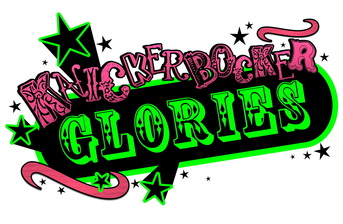
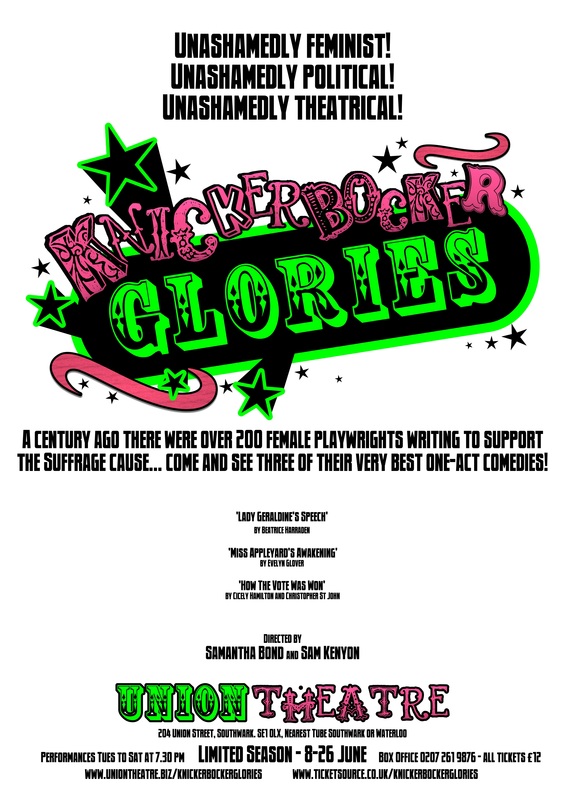
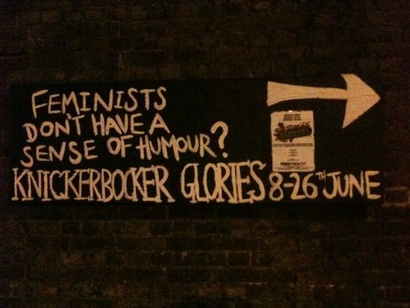
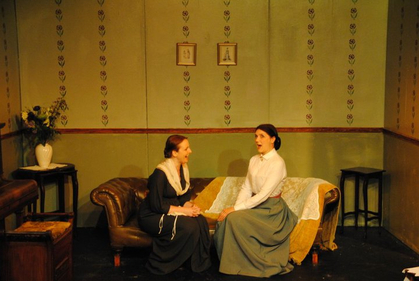
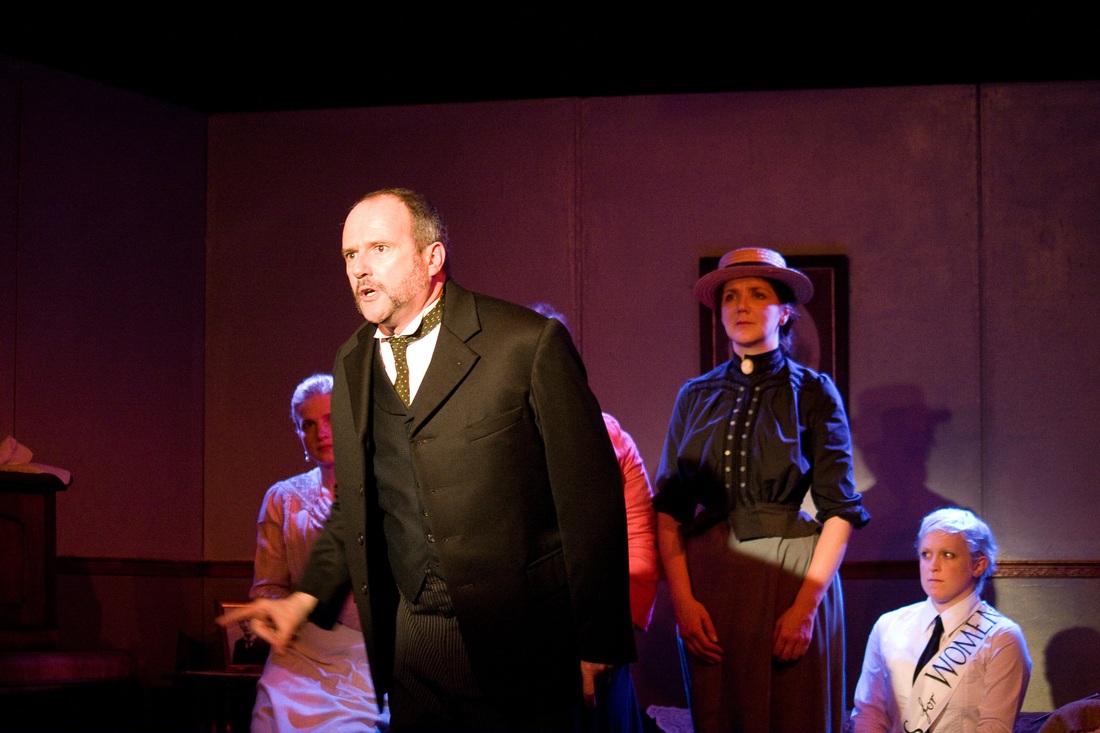
 RSS Feed
RSS Feed